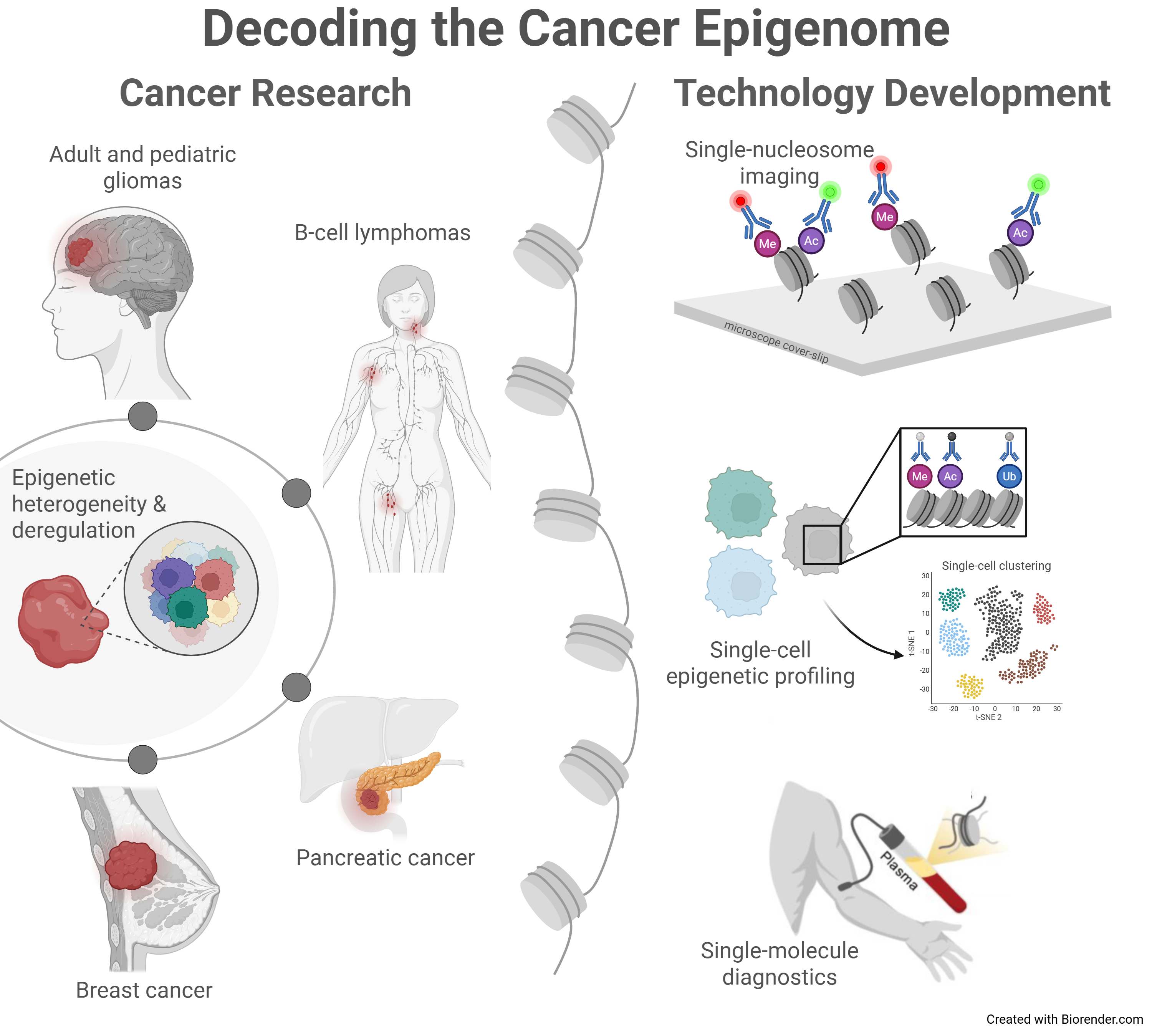 We study how epigenetic deregulation in cancer contributes to tumor initiation and progression. To address these fundamental questions, we develop and apply innovative cutting-edge single-molecule and single-cell technologies.
We study how epigenetic deregulation in cancer contributes to tumor initiation and progression. To address these fundamental questions, we develop and apply innovative cutting-edge single-molecule and single-cell technologies.
The activity of genes and regulatory elements is modulated by their cell type-specific chromatin organization. Histone modifications and chromatin regulators play important roles in cellular differentiation and development. Chromatin structure is constantly changing in response to developmental and environmental cues; this dynamic regulation is the basis for cellular plasticity.
Disruption of epigenetic control is a frequent event in disease, and specifically in cancer. More than 50% of human cancers harbor mutations in enzymes that are involved in chromatin organization. We develop methodologies at the interface of genomics and proteomics, with the goal of paving the way towards deeper understanding of chromatin regulation, as well as develop novel diagnostic tools for early detection of cancer.
